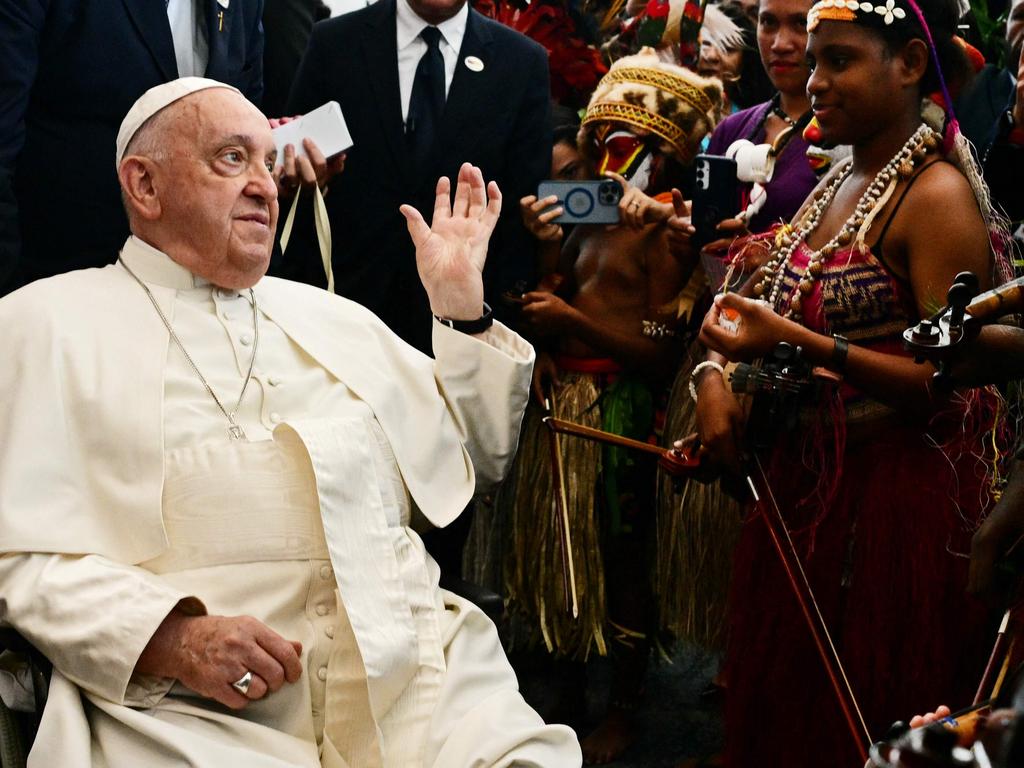Pope Francis had his flaws, but did not deserve derision

In September 2013, six months after Pope Francis was elected, I was privileged to go to Rome for a conference on the family. I stayed at the house where the new Pope lived, the Domus Sanctae Marthae, which is also the place the cardinals stay during a conclave.
We saw him going about his business every day, coming out of the lift in the morning, going to the chapel, laughing and chatting with his guards, and in the evening having his dinner with the lay people before giving us a friendly wave and thumbs up as walked out of the dining room.
This casual behaviour cemented Francis’s reputation as an approachable, warm person, despite being the governor of the biggest human organisation on the planet and the moral and theological arbiter of about 1.4 billion people, and his personality made him very popular, especially with millennials and Gen Z, as I have been told by my own children.
In his personal style he was like his great predecessor John Paul II who, now a canonised saint, was also approachable, warm and humorous. Yet as most Catholics would agree, Francis was a controversial Pope. His casual remarks to the media confused many people, delighted others. However, I have never heard a pope spoken of with such derision as Francis, usually by people who should know better. What is worse, Francis has been the subject of unbalanced commentary from the Catholic intelligentsia that is hard for most everyday Sunday mass-going Catholics in Australia to reconcile.

RR Reno, editor of First Things, probably the most influential journal of current conservative Judaeo-Christian thought, said these glowing things in a 2015 interview with Jesuit publication America about Francis’s visit to the US and Cuba: “His usual themes (are) of going to the periphery, reaching out to the excluded and empowering those who are on the margins of society … his insistence that the way forward is going to require us to acknowledge and recognise the moral law written into human nature … an important contribution the Catholic Church has to make to the global scene, (is) a reminder that our political lives are in the service of moral truths … I think one of his most powerful witnesses is his refusal to let the hierarchies of the world determine his ministry and the spiritual attention he gives to others.”
But in 2025 it is another day, and another commentary on Francis by the same author: “Pope Francis fancies himself a man of the people. But when it comes to borders, he is allied with EU bureaucrats and globalist elites. His moralising criticism of any effort to stem the tide of migrants amounts to attacks on a growing body of ordinary Europeans and Americans. The Pope insinuates that growing electoral support for populist politicians stems from xenophobic ‘hate’ and a desire to ‘discriminate’ and ‘exclude’ … the Holy Father sounds like the director of DEI at Google.”
These two contradictory views seem to sum up the shift in Catholic commentary on Francis. Was he inconsistent and confusing? Did he make contradictory pronouncements or is the commentary, propelled and fragmented by social media, causing confusing?

Criticism of a pope can be justified because the pope is an ordinary man who has flaws. Francis was reputed to have had a volatile temper. He was not popular with some clerics. He lost his media advisers. It is no secret that Cardinal George Pell did not like him much, although both were authoritarians. Francis withdrew support for Pell’s oversight of the finance portfolio; nevertheless, he supported Pell during his trials in Australia. Francis knew Pell was not guilty of the charges against him.
Whether a pope is popular or well-liked is not the point. The point is whether his pronouncements were as contradictory as critics claim. Four things keep coming up in relation to Francis: the Latin mass, communion for divorced Catholics, gay marriage and the China agreement.
Banning the Latin Tridentine mass was a move against people who were severe critics of the Pope – and they became worse critics. Not a good move. As for marriage, as cardinal in Argentina, Francis called gay marriage “the work of the devil”. That was pretty clear. He did not support it but he encouraged blessings for individuals within those relationships and encouraged them to stay in the church. Like divorce, it kept coming up from some European clerics and secular media. The church will not and cannot change its teachings on these issues because they go to the heart of teaching about what sacramental marriage is, for the procreation of children and sacramentally indissoluble.
The China problem is more serious. In an attempt to bring persecuted Chinese Catholics in from the cold the church seems to have compromised with a ruthless secular authority to appoint the church’s teachers.
But the boundaries of the church are not national nor is its timeline finite, whether the pope be Argentinian, Brazilian or Congolese. Reno’s last remark about Francis’s “moralising criticism” is nonsense. What is the Pope if not a moraliser? Faith and morals are his business. He didn’t see the immigration crisis in Europe and the US in the strict paradigm of maintaining national borders and cultural cohesion because the scope of the church’s teaching goes beyond those limits to the paradigm of good and evil, which is universal.
The secular media, captured by ideologies of left and right, is reluctant to grasp that morality encompasses everything. As Reno said, our political lives are “in the service of moral truths”. No one understands that better than the successor of St Peter.





